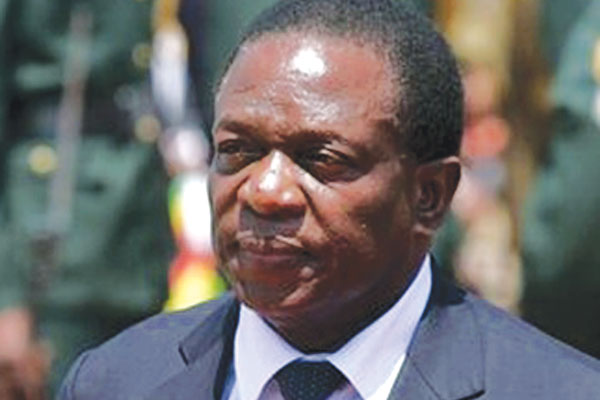
VICE-PRESIDENT Emmerson Mnangagwa’s strong stance against the death penalty was influenced by his personal experiences where as a teenage saboteur, he was saved from the hangman’s noose by Catholic priest, Father Emmanuel Ribeiro during the colonial era, Chief Justice Godfrey Chidyausiku has revealed.
by PAIDAMOYO MUZULU
Chidyausiku made the revelation last Friday while introducing Mnangagwa as the guest of honour at the launch of an anti-corruption campaign by a cluster of justice delivery departments at Harare Magistrates’ Courts.
Mnangagwa was arrested and convicted of sabotage for bombing a railway line in Masvingo in 1962.
The colonial regime sentenced him to death by hanging.
While on the death row, Chidyausiku said, Ribeiro, who worked as prison chaplain, met Mnangagwa.
“Father Ribeiro asked the then young Emmerson why he was still around, to which he replied that his application for amnesty had been turned down,” Chidyausiku said. The Chief Justice said Ribeiro then devised a plan to save Mnangagwa.
- Chamisa under fire over US$120K donation
- Mavhunga puts DeMbare into Chibuku quarterfinals
- Pension funds bet on Cabora Bassa oilfields
- Councils defy govt fire tender directive
Keep Reading
“Father Ribeiro took young Emmerson to the prison doctor, then an Italian, whom he asked to examine to ascertain his [Mnangagwa] age. The doctor asked Emmerson to open his mouth and exclaimed he was a boy. He was brave because very few would open the mouth of a crocodile,” Chidyausiku said.
“After that, Father Ribeiro wrote a petition seeking amnesty for the then uneducated Emmerson, which he duly copied and sent to the authorities.”
It is this same petition that duly saved Mnangagwa from the gallows, as it established with medical backing then that he was under the age of 21.
Capital punishment, then, could only be handed down to convicts above the age of 21.
On that contrived technicality, Mnangagwa was released and exiled to Zambia.
Chidyausiku bolstered his assertions by saying they could be backed up by Father Ribeiro.
“Those who doubt this can verify with Father Ribeiro, he is still in Hatfield,” he said.
Ironically, despite Mnangagwa’s views, the State recently vehemently opposed a Constitutional Court application by death row inmates to have their sentences commuted to life in prison.
The inmates argue that death sentence is inhuman and degrading.
Meanwhile, Chidyausiku said that the police had a greater role to play in the fight against corruption.
“If there is certainty of detection and arrest in 9 out of 10 cases, there is the high probability that people will step back or think twice before committing a crime,” he said.
“In this, we look up to the police to improve methods of detection that should improve rates of arrests for corruption.”
The Chief Justice conceded that the fight against corruption should also include the bettering of the conditions of service for those in the judiciary, so that they can regain their self-esteem and a passing of deterrent sentences, especially to members of the judiciary convicted of corruption.












